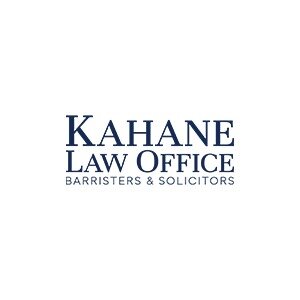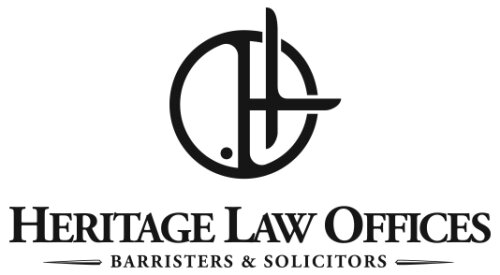Best Oil, Gas & Energy Lawyers in Edmonton
Share your needs with us, get contacted by law firms.
Free. Takes 2 min.
List of the best lawyers in Edmonton, Canada
About Oil, Gas & Energy Law in Edmonton, Canada
Edmonton, located in Alberta, holds a significant position in Canada's oil, gas, and energy sector. It serves as a major hub for services and supplies for the oil sands up north, leading to a series of complex legal, commercial, and regulatory challenges. The laws regarding oil, gas, and energy in Edmonton mainly revolve around the exploration, extraction, and selling of these resources, environmental impact and protections, property rights, and stakeholder agreements.
Why You May Need a Lawyer
You may require a lawyer in the field of oil, gas, and energy in several situations. This might include negotiating agreements related to oil and gas leases, pipeline right of way, royalties, and surface access. Legal help might also be required in regulatory matters including dealing with governmental approvals, licensing, auditing, and complying with safety standards. Furthermore, lawyers are also necessary in situations of dispute resolution and litigation, such as disagreements over contracts, property rights, or environmental damages.
Local Laws Overview
Key aspects of local laws in Edmonton regarding oil, gas, and energy include property and mineral rights, regulations from the Alberta Energy Regulator, and environmental laws. Mineral rights in Alberta are primarily owned by the Crown, and businesses may acquire them via leases, licenses, and permits. The Alberta Energy Regulator oversees the safe and efficient development of hydrocarbon resources. This includes rules around drilling, production, conservation, and environmental protection. Moreover, firms need to adhere to Alberta's environmental law and regulations aiming to decrease environmental impact and promote sustainable resources development.
Frequently Asked Questions
1. Who owns the oil, gas, and mineral rights in Edmonton?
Most of the oil, gas, and mineral rights are owned by the Crown (the government). However, these rights can be leased to businesses.
2. Is fracking allowed in Edmonton?
Fracking is allowed in Edmonton. However, it is subject to specific rules and regulations from the Alberta Energy Regulator.
3. How does environmental law affect the oil and gas industry in Edmonton?
Environmental law has a significant impact, as oil and gas companies must comply with regulations designed to minimize environmental harm and facilitate resource sustainability. This includes following guidelines for waste disposal, emissions, land reclamation, and biodiversity conservation.
4. How are disputes in the oil and gas sector resolved?
Many disputes can be resolved through arbitration or mediation, but some may require litigation. Having a lawyer with expertise in oil, gas, and energy law will help navigate these process.
5. How to apply for a licence to extract oil and gas?
Alberta Energy, a division of the Alberta government, handles the licensing for oil and gas extraction. An application, coupled with a proposed plan for resource extraction and management, must be submitted for review.
Additional Resources
Those needing legal advice in the field of oil, gas, and energy can explore resources like Alberta Energy (government division), the Alberta Energy Regulator (provincial regulator), or the Canadian Association of Petroleum Producers (industry association). Each of these organizations provides a range of information, resources, and guidance related to the sector.
Next Steps
If you require legal assistance, it may be a good idea to compile a list of any questions you have and information about your situation. Then, consider reaching out to law firms in Edmonton specializing in oil, gas, and energy law for a consultation. Legal professionals will undoubtedly evaluate your situation and provide expert advice based on applicable laws and regulations.
Lawzana helps you find the best lawyers and law firms in Edmonton through a curated and pre-screened list of qualified legal professionals. Our platform offers rankings and detailed profiles of attorneys and law firms, allowing you to compare based on practice areas, including Oil, Gas & Energy, experience, and client feedback.
Each profile includes a description of the firm's areas of practice, client reviews, team members and partners, year of establishment, spoken languages, office locations, contact information, social media presence, and any published articles or resources. Most firms on our platform speak English and are experienced in both local and international legal matters.
Get a quote from top-rated law firms in Edmonton, Canada — quickly, securely, and without unnecessary hassle.
Disclaimer:
The information provided on this page is for general informational purposes only and does not constitute legal advice. While we strive to ensure the accuracy and relevance of the content, legal information may change over time, and interpretations of the law can vary. You should always consult with a qualified legal professional for advice specific to your situation.
We disclaim all liability for actions taken or not taken based on the content of this page. If you believe any information is incorrect or outdated, please contact us, and we will review and update it where appropriate.











